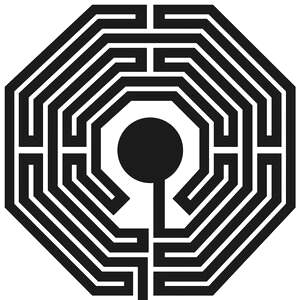Swiping Right into The Latest Emerging Economic Market
A dimly lit screen shines in the darkness of your room. Flashing colors and twiddling thumbs dance like fireworks… until your thumb swipes right. Your heart drops, your fingers freeze, and now you play the waiting game.
Whether it’s swiping left or right, any kind of decision-making is crucial in anyone’s life. With every decision comes an opportunity cost. Some decisions could be trivial – whether it's buying coffee or tea – while others may be costly like investing in a house, choosing which university to go to, or finding your future partner. Big decisions like these involve search costs, and we bear these because of the value and importance we place towards these decisions in order to maximize our utility. As rational beings, we seek to think rationally about the outcomes and make the choice that gives us the most utility.
With the introduction of dating apps and platforms, the online dating world is no different from an economic market. These services offer us the ability to find our ideal match at the tip of our fingers. Online dating is a special type of market as users act as both the buyer and seller without a direct substitute for an ideal match. Paul Oyer, professor at Stanford's Graduate School of Business and author of Everything I Ever Needed to Know About Economics I Learned from Online Dating, describes this niche market without a direct substitute as decisions and exchanges are subject to people’s preferences. Here with economics, words such as signaling, markets, and asymmetric information are here as tools to meet your match.
These all create a domino effect in the dating world as firstly dating enables users to signal their intentions to connect with others on the platform. From here, dating creates this market between “buyer” and “seller” wherein both parties want something out of each other yet they also provide something to the other person. However, because this market can be riddled with confusing and misleading signals, which causes people to fall into an asymmetric information trap. People get swayed by others, prompted by incentive, to signal their best behavior while others lead to failed relationships, leading to sunk costs.
Similar to markets, Chris Taylor describes dating as “a barter system,” an economy in which there is no money to simplify transactions. Dating markets don’t have currency so they depend on other mechanisms to operate such as your physical qualities, age, attractiveness, or financial status. Trading in this market requires the double coincidence of wants, where both have to buy and sell each others’ commodities in order to benefit. Both people have to be fit for each other for it to be mutually beneficial.
Apart from these, the online dating market involves opportunity costs. Users continue to make numerous economic judgements and choices while dating online. Firstly, we are estimating our own value, which may or may not be accurate. At the same time, we are also estimating the value of others’, whether they are likely to match or whether they’re out of our league. Secondly, we then weigh the potential matches against the opportunity cost of losing out on a relationship with another person who may be better-suited to us. These judgments are made in just a swipe– wait too long and we lose our match.
Jon Birger, author of Date-Onomics, says that the market is scarce because there is a surplus of women and a shortage of men, a problem economists also face: scarcity. This enables men to have the opportunity to select their match rather than women selecting theirs. However, despite the scarcity, people continue to give various signals towards others to collect and select. An example of such signaling is a dating site in Korea wherein users could give a limited number of virtual roses to show their interest - the virtual rose can thus be dubbed a ‘costly signal’. However, online dating has made things more efficient. This is due to the convenience it brings– time efficiency and selecting from the comforts of your home. Subsequently, it has lowered the costs of keeping in communication with someone. This is exemplified by the fact that anyone can just swipe right on whomever they find interesting.
Oyer creates this notion of artificial scarcity. To contextualize this idea, he makes a comparison to the US Common Application for colleges, stating, “When you lower the cost of doing something, you make it too easy.” You can send the same application and essay to multiple universities and wait to hear back from them. This devalues your intentions and desire to apply to a specific university as you collect and select from here. Similarly with online dating, users are given the opportunity to “collect and select,” destroying the idea of focusing on a smaller pool of people and nurturing one’s relationships with them. Communicating costs have become cheaper thus enabling users to signal their intentions to almost anyone.
Overall, online dating can impose benefits and risks. As it creates the niche market, it opens everyone to the possibility of various buyers and sellers, all with one goal: to find their perfect match. By signaling intentions to one or various potential prospects, one can evaluate trade-offs and opportunity costs until they reach their equilibrium with each other. Who knew economics could be a guide to help you find your match?

